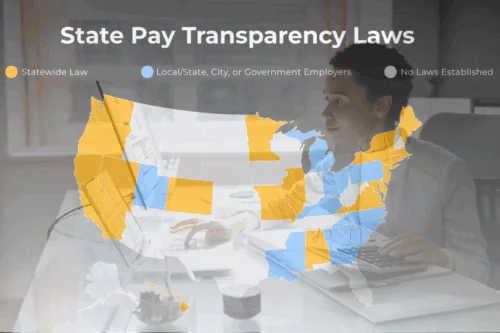Welcome to your guide to employee labor laws. Whether you’re just stepping into the workforce or a seasoned employee, understanding these laws is crucial for safeguarding your rights at work. This guide breaks down the complexities of labor laws into easy-to-understand sections, providing you with the knowledge needed to navigate the workplace confidently.
Dive into our comprehensive overview to enhance your understanding of the protections and obligations under these laws. You’ll learn about federal and state-specific regulations, how to report violations effectively, and the responsibilities employers must uphold. Let’s empower you with the information to ensure a fair and safe work environment.
Understanding Employee Labor Laws
Employee labor laws are essential for protecting workers’ rights and well-being. They ensure fair treatment, safety, and proper compensation across diverse industries. Let’s explore why understanding these laws matters to employees and employers.
Basics of Employee Labor Laws
Employee labor laws cover various topics, including wages, workplace safety, discrimination, and wrongful termination. Employment training and standards at both federal and state levels guide these regulations to ensure equitable work environments.
Why These Laws Matter
- Worker Protection: These laws safeguard against exploitation and mistreatment in the workplace.
- Setting Standards: They establish minimum health, safety, and pay requirements.
- Dispute Resolution: Provides a legal framework for resolving conflicts between employers and employees.
Key Provisions to Know
Several provisions underpin most employee labor laws:
- Minimum Wage: Ensures all workers receive at least the federally mandated minimum wage for their labor.
- Hours and Overtime: Regulates the number of hours worked and ensures proper overtime compensation.
- Workplace Safety: Mandates conditions under which employees can work, aiming to prevent accidents and injuries.
For further clarity and detail, refer to the comprehensive Fair Labor Standards Act (FLSA) Overview, which sets the stage for many employment guidelines. Understanding these laws helps adhere to legal standards and breeds a more cooperative and positive work environment.
Federal Laws Impacting Employees
Federal labor laws provide the backbone for employee rights and employer responsibilities across the United States. These laws are crucial for maintaining protection for workers in various sectors.
Major Federal Labor Laws
Understanding federal laws helps employees confirm their rights are respected and that employers maintain compliance. Here are some primary laws:
- The Family and Medical Leave Act (FMLA): Guarantees eligible employees up to 12 weeks of unpaid leave per year without the risk of job loss.
- The Occupational Safety and Health Act (OSHA): Ensures employee safety in the workplace by enforcing specific health and safety regulations.
- The Americans with Disabilities Act (ADA): Prohibits discrimination against individuals with disabilities in all areas of public life, including jobs.
Enforcement Agencies
Several federal agencies enforce these laws:
- Department of Labor (DOL): Oversees employment issues, including wages and workplace safety.
- Equal Employment Opportunity Commission (EEOC): Handles regulations against workplace discrimination.
- National Labor Relations Board (NLRB): This board addresses the rights of employees to organize and bargain collectively with their employers.
For a more detailed understanding, employees and employers can visit the Wage and Hour Division (WHD) of the Department of Labor, which provides extensive resources on labor standards. Additionally, you can find critical updates and recent changes on the EEOC guidance page, ensuring you stay informed about your rights and duties under federal laws.
State-Specific Employee Labor Laws
While federal laws provide a baseline, state-specific employee labor laws often expand or adjust these protections to local needs. Understanding your state’s laws is crucial for both compliance and rights protection.
Examples of State Variations
Different states may have unique laws regarding minimum wage, sick leave, and other labor issues. Here are some examples:
- California: Offers higher minimum wages and privacy protections.
- New York: Includes regulations on paid family leave that exceed federal standards.
- Texas: Has specific laws concerning meal and rest breaks that differ from federal guidelines.
Navigating State and Federal Laws
When state and federal laws differ, employers must comply with the more stringent regulations to protect their employees adequately. Here are some tips:
- Always check both state and federal guidelines.
- Consult with legal experts if conflicting laws cause confusion.
- Monitor changes regularly, as state laws can update frequently.
The Wage and Hour Division’s history of state minimum wages provides an excellent resource for helping employers and workers understand specific state regulations. Additionally, Nolo’s guide on employee rights provides more information on employees’ rights and how to address grievances.
Rights and Protections Under Employee Labor Laws
Employee labor laws give workers rights that protect them from unfair practices and unsafe working conditions.
Core Worker Rights
Here are some of the fundamental rights provided under employee labor laws:
- Right to Fair Compensation: Workers have the right to receive at least the minimum wage, as well as overtime pay, where applicable.
- Right to a Safe Workplace: Laws such as OSHA ensure employers provide a workplace free of known health and safety hazards.
- Right Against Discrimination: Federal laws protect workers from discrimination based on race, color, religion, sex, national origin, age, disability, or genetic information.
Protection Against Retaliation
Employees are also protected from retaliation for asserting their rights under these laws, such as filing a complaint or participating in an investigation. This protection guarantees workers can speak out without fear of losing their jobs.
Finding Support and Resources
For those seeking advice or who wish to file a complaint, resources are available:
- Local or state employment offices can provide guidance specific to the region.
- National agencies like the Equal Employment Opportunity Commission (EEOC) offer tools and support for handling discrimination issues.
It is critical that employees know these rights and understand how to utilize the protections offered by employee labor laws. Awareness and proactive steps can greatly impact worker equality and safety.
How to Report Violations of Employee Labor Laws
When employee rights are compromised, knowing how to report these issues properly is important.
Steps to Take in Reporting
If you suspect a violation of labor laws, follow these structured steps:
- Document Everything: Keep records of any instances or practices that may violate labor laws.
- Report Internally: First, report the issue through your employer’s internal complaint procedures if available.
- File a Complaint: If internal reports don’t resolve the issue, you can file a formal complaint with the appropriate agency.
Where to File Complaints
Depending on the nature of the violation, different agencies handle complaints:
- Wages and Hours: The DOL’s Wage and Hour Division addresses issues like unpaid wages and overtime.
- Workplace Safety: OSHA handles complaints regarding unsafe working conditions.
- Discrimination: The EEOC is the gateway for discrimination complaints.
Knowing how to report violations appropriately empowers employees to ensure their workplace is safe, fair, and compliant with employee labor laws.
Employer Responsibilities and Compliance
Employers play a crucial role in upholding employee labor laws and ensuring a lawful, ethical workplace.
Key Responsibilities
Employer obligations under labor laws include:
- Maintaining Compliance: Adhere to all local, state, and federal laws regarding employment.
- Creating Safe Workplaces: Implement necessary safety measures to prevent accidents and injuries.
- Ensuring Fair Compensation: Pay employees at least the minimum wage and compensate for overtime as required.
Compliance Strategies
To effectively comply with labor laws, employers should:
- Regularly review labor law updates to ensure policies remain current.
- Provide training for management and human resources on all laws and best practices.
- Implement a transparent grievance procedure to address any employee complaints.
Employers who cultivate an environment of compliance and respect for employee labor laws protect their businesses from legal issues and contribute to a positive workplace culture. Such practices encourage employee satisfaction and retention.
Changes and Updates in Employee Labor Laws
Employee labor laws continually evolve to adapt to new workplace challenges and societal shifts.
Recent Legislative Changes
Recent years have seen significant changes, including:
- Expansion of Remote Work Policies: Many laws have been updated to address the rise of remote work.
- Increased Minimum Wage: Several states have passed laws raising the minimum wage above the federal level.
- Enhancements in Anti-Discrimination Laws: There have been several updates to improve protections against workplace discrimination.
Keeping Up-To-Date
Staying informed about these changes is essential for both employers and employees. Here are some ways to stay updated:
- Subscribe to newsletters from legal and HR resources.
- Attend webinars and training sessions on employment law.
- Consult with legal experts regularly to ensure compliance.
For detailed updates on recent and upcoming legislation, visiting the official U.S. Congress website can provide valuable insights. Employers can also access resources at the Society for Human Resource Management (SHRM) to help manage compliance effectively.
FAQ’s
What are the basic rights protected under employee labor laws?
Employee labor laws typically protect rights related to fair pay, safe working conditions, and freedom from discrimination.
Can I be fired for reporting a violation of labor laws?
No, retaliation against employees for reporting violations or participating in investigations is prohibited under most labor laws.
How do I know if my employer is violating labor laws?
Signs may include unpaid wages, unsafe work conditions, or discrimination. Document your experiences and seek legal advice if necessary.
What should I do if I face workplace discrimination?
Report the issue to your HR department or directly file a complaint with the EEOC.
Where can I find updates on changes to labor laws?
Visit government websites like the U.S. Department of Labor or subscribe to legal and HR newsletters to stay updated.
Are labor law protections different for part-time and full-time employees?
Most labor laws apply to part-time and full-time employees, but specific rights might vary based on hours worked.
Conclusion
Understanding and adhering to employee labor laws is crucial for workers and employers. It ensures that workplaces comply with the law and promote a fair and safe working environment. Educating oneself about these laws helps one recognize rights, understand responsibilities, and know what steps to take when issues arise.
Take Action
If you seek employment opportunities where diversity and compliance with labor laws are prioritized, join Diversity Employment and upload your resume today! Our job board connects job seekers with employers committed to creating law-abiding, inclusive workplaces.
Join our community to stay informed, stay protected, and take proactive steps towards a better working environment for all!




